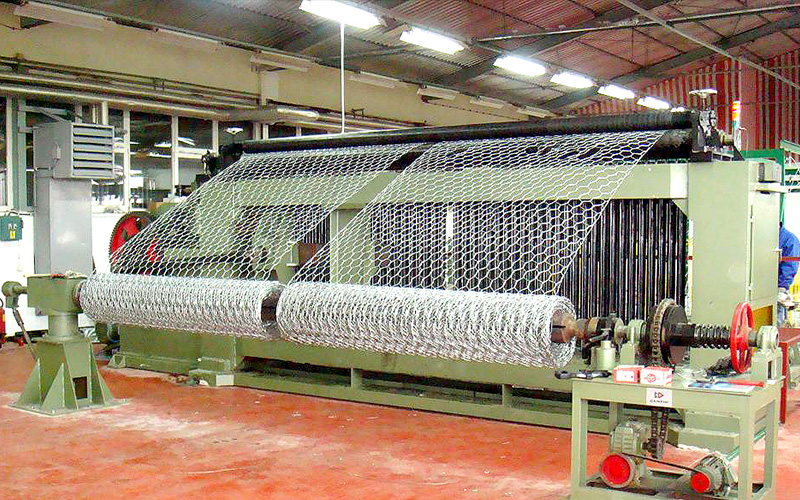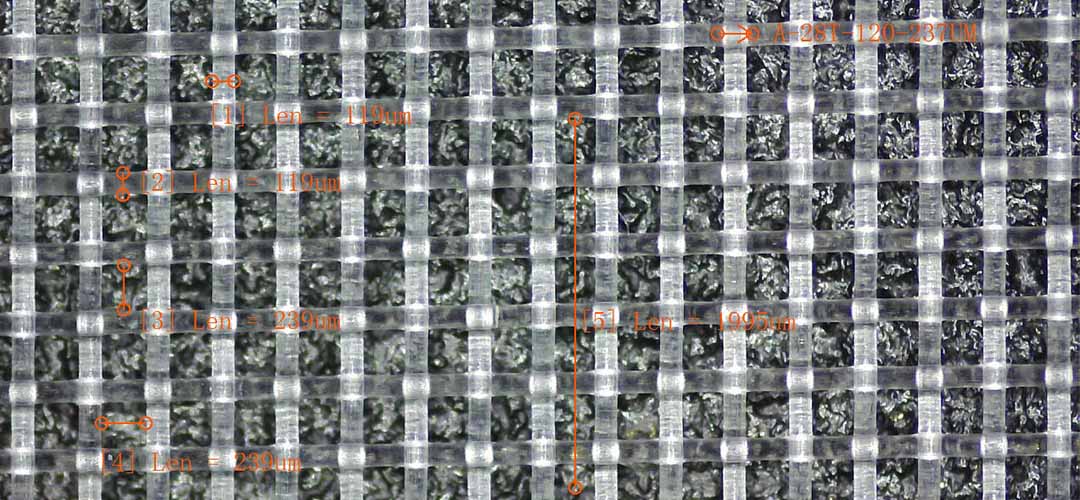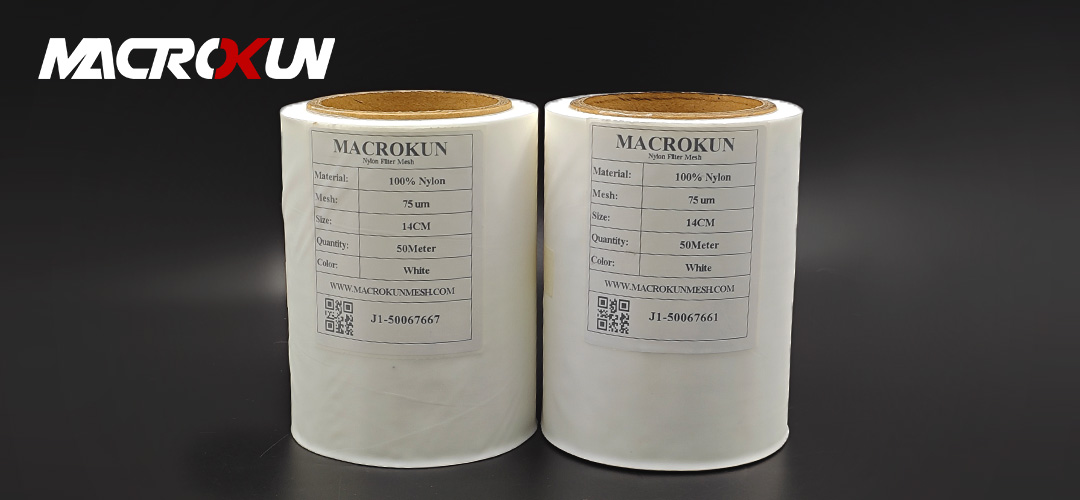Nylon screen material is a popular choice for many homeowners and businesses due to its durability and versatility. However, like any other material, nylon screens require regular cleaning and maintenance to ensure they last for a long time. Proper cleaning techniques can help extend the life of your nylon screen material and keep it looking its best.
One of the most important things to remember when cleaning nylon screen material is to avoid using harsh chemicals or abrasive cleaners. These can damage the material and cause it to deteriorate more quickly. Instead, opt for a mild detergent or soap and water solution. Mix a small amount of detergent with warm water and use a soft cloth or sponge to gently scrub the screen material. Be sure to rinse thoroughly with clean water to remove any soap residue.
When cleaning nylon screen material, it’s also important to avoid using excessive force or pressure. Scrubbing too hard can cause the material to stretch or tear, compromising its integrity. Instead, use a gentle touch and let the cleaning solution do the work. If you encounter stubborn stains or dirt, you can try using a soft-bristled brush to gently scrub the affected area.
In addition to regular cleaning, it’s important to inspect your nylon screen material regularly for any signs of damage or wear. Look for tears, holes, or loose threads that may need to be repaired. If you notice any damage, it’s best to address it as soon as possible to prevent further deterioration. Small tears or holes can often be repaired with a patch or adhesive, while larger damage may require professional repair or replacement.

To maintain the integrity of your nylon screen material, it’s also important to store it properly when not in use. Avoid folding or creasing the material, as this can cause permanent damage. Instead, roll the screen material up and store it in a dry, cool place away from direct sunlight. This will help prevent fading and deterioration over time.
Regular maintenance of your nylon screen material can help extend its lifespan and keep it looking its best. By following proper cleaning techniques, inspecting for damage, and storing it properly, you can enjoy your nylon screens for years to come. Remember to avoid harsh chemicals, use a gentle touch when cleaning, and address any damage promptly to keep your nylon screen material in top condition.
In conclusion, proper cleaning and maintenance are essential for prolonging the life of your nylon screen material. By following these tips and techniques, you can keep your screens looking great and functioning properly for years to come. With a little care and attention, your nylon screens can continue to provide protection and privacy for your home or business.
Nylon screens are a popular choice for many homeowners and businesses due to their durability and versatility. However, like any other material, nylon screens require regular cleaning and maintenance to ensure they last for a long time. By following a few simple tips, you can prevent damage to your nylon screens and keep them looking like new for years to come.
One of the most important things you can do to maintain your nylon screens is to clean them regularly. Dust, dirt, and other debris can build up on the surface of the screen, making it less effective at filtering out insects and other pests. To clean your nylon screens, start by removing them from the window or door frame and laying them flat on a clean surface. Use a soft brush or cloth to gently remove any dirt or debris from the surface of the screen. Avoid using harsh chemicals or abrasive cleaners, as these can damage the nylon material.
After cleaning the surface of the screen, you can also wash it with a mild detergent and water solution. Fill a bucket with warm water and add a small amount of mild detergent. Dip a soft brush or cloth into the soapy water and gently scrub the screen to remove any remaining dirt or grime. Rinse the screen thoroughly with clean water and allow it to air dry before reinstalling it in the window or door frame.
In addition to regular cleaning, it’s also important to inspect your nylon screens for any signs of damage or wear. Check for tears, holes, or loose threads that could compromise the integrity of the screen. If you notice any damage, repair it as soon as possible to prevent further deterioration. Small tears or holes can often be patched with a nylon repair kit, which is available at most hardware stores. For larger tears or damage, you may need to replace the entire screen.
To prevent damage to your nylon screens, it’s also important to handle them with care. Avoid pulling or stretching the screen when removing it from the window or door frame, as this can cause tears or damage to the material. Instead, gently lift the screen out of the frame and lay it flat on a clean surface for cleaning. When reinstalling the screen, be sure to secure it properly in the frame to prevent it from coming loose or falling out.
Finally, consider investing in a screen protector or cover to help prolong the life of your nylon screens. Screen protectors are available in a variety of materials, including vinyl and aluminum, and can help shield your screens from harsh weather conditions, UV rays, and other environmental factors that can cause damage. By using a screen protector, you can extend the life of your nylon screens and keep them looking like new for longer.
In conclusion, maintaining your nylon screens is essential for ensuring their longevity and effectiveness. By following these simple tips, you can prevent damage to your screens and keep them in top condition for years to come. Regular cleaning, inspection, and care are key to preserving the integrity of your nylon screens and enjoying their benefits for a long time.
Nylon screen material is a popular choice for many homeowners and businesses due to its durability and versatility. However, like any other material, nylon screens require regular maintenance to ensure they remain in good condition and last longer. Neglecting to clean and maintain nylon screen material can lead to a buildup of dirt, debris, and other contaminants that can compromise its effectiveness and lifespan.
Regular maintenance of nylon screen material is essential for several reasons. Firstly, cleaning the screens regularly helps to remove dirt, dust, and other debris that can accumulate on the surface. This buildup not only looks unsightly but can also affect the functionality of the screens, making them less effective at keeping out insects and other pests. Additionally, regular cleaning can help to prevent mold and mildew growth, which can be a common problem in humid environments.

Proper maintenance of nylon screen material also helps to extend its lifespan. By regularly cleaning and caring for the screens, you can prevent damage and wear that can occur over time. This can save you money in the long run by avoiding the need for costly repairs or replacements. Additionally, maintaining your nylon screens can help to preserve their appearance, keeping them looking new and fresh for longer.
There are several steps you can take to clean and maintain nylon screen material effectively. Firstly, it is important to regularly vacuum or brush the screens to remove any loose dirt and debris. This can be done using a soft brush attachment on a vacuum cleaner or a gentle brush. Be sure to be gentle when cleaning the screens to avoid damaging the material.
| Model | Mesh Count (/cm) |
Mesh Count (/inch) |
Thread Dia (um) |
Mesh Opening (um) |
Thickness (um) |
Weight (g/m2) |
| NL4/1950 | 4 | 10 | 550 | 1950 | 1100 | 307 |
| NL5/1500 | 5 | 13 | 500 | 1500 | 1000 | 318 |
| NL6/1267 | 6 | 15 | 400 | 1267 | 800 | 244 |
| NL7/1079 | 7 | 18 | 350 | 1079 | 700 | 218 |
| NL8/900 | 8 | 20 | 350 | 900 | 700 | 249 |
| NL9/861 | 9 | 23 | 250 | 861 | 500 | 143 |
| NL9/811 | 9 | 23 | 300 | 811 | 600 | 206 |
| NL10/750 | 10 | 25 | 250 | 750 | 500 | 159 |
| NL10/700 | 10 | 25 | 300 | 700 | 600 | 229 |
| NL12/583 | 12 | 30 | 250 | 583 | 500 | 191 |
| NL12/533 | 12 | 30 | 300 | 533 | 600 | 274 |
| NL14/514 | 14 | 36 | 200 | 514 | 340 | 142 |
| NL16/425 | 16 | 40 | 200 | 425 | 340 | 160 |
| NL20/350 | 20 | 50 | 150 | 350 | 255 | 113 |
| NL20/300 | 20 | 50 | 200 | 300 | 340 | 200 |
| NL24/267 | 24 | 60 | 150 | 267 | 255 | 135 |
| NL28/237 | 28 | 70 | 120 | 237 | 204 | 101 |
| NL30/213 | 30 | 76 | 120 | 213 | 204 | 110 |
| NL32/213 | 32 | 80 | 100 | 213 | 170 | 80 |
| NL36/178 | 36 | 90 | 100 | 178 | 170 | 90 |
| NL40/150 | 40 | 100 | 100 | 150 | 170 | 100 |
| NL43/153 | 43 | 110 | 80 | 153 | 136 | 70 |
| NL48/128 | 48 | 120 | 80 | 128 | 136 | 77 |
| NL56/119 | 56 | 140 | 60 | 119 | 102 | 50 |
| NL64/96 | 64 | 160 | 60 | 96 | 102 | 58 |
| NL72/89 | 72 | 180 | 50 | 89 | 85 | 45 |
| NL80/75 | 80 | 200 | 50 | 75 | 85 | 50 |
| NL100/57 | 100 | 250 | 43 | 57 | 73 | 46 |
| NL110/48 | 110 | 280 | 43 | 48 | 73 | 52 |
| NL120/48 | 120 | 300 | 35 | 48 | 60 | 37 |
| NL120/40 | 120 | 300 | 43 | 40 | 73 | 55 |
| NL130/42 | 130 | 330 | 35 | 42 | 60 | 40 |
| NL130/34 | 130 | 330 | 43 | 34 | 73 | 61 |
| NL140/36 | 140 | 350 | 35 | 36 | 60 | 43 |
| NL157/25 | 157 | 400 | 43 | 25 | 73 | 74 |
| NL180/20 | 180 | 450 | 39 | 20 | 66 | 68 |
| NL200/15 | 200 | 500 | 39 | 15 | 66 | 76 |
| NL220/10 | 220 | 550 | 39 | 10 | 66 | 84 |
| NL240/5 | 240 | 600 | 39 | 5 | 66 | 91 |
For more stubborn dirt and stains, you can use a mild detergent and water solution to clean the screens. Simply mix a small amount of detergent with water and use a soft cloth or sponge to gently scrub the screens. Be sure to rinse the screens thoroughly with clean water to remove any soap residue. Avoid using harsh chemicals or abrasive cleaners, as these can damage the nylon material.
In addition to regular cleaning, it is important to inspect the screens regularly for any signs of damage or wear. Look for tears, holes, or loose threads that may need to be repaired. If you notice any damage, be sure to address it promptly to prevent further deterioration.
Another important aspect of maintaining nylon screen material is proper storage during the off-season. If you live in an area with harsh winters or extreme weather conditions, it is a good idea to remove the screens and store them indoors during the colder months. This can help to prevent damage from snow, ice, and freezing temperatures.
In conclusion, regular maintenance of nylon screen material is essential for ensuring its longevity and effectiveness. By following these simple tips for cleaning and caring for your screens, you can keep them looking great and functioning properly for years to come. Remember to be gentle when cleaning the screens, inspect them regularly for damage, and store them properly during the off-season. With proper care and maintenance, your nylon screens can continue to provide you with protection and peace of mind for years to come.
Nylon screens are a popular choice for many homeowners and businesses due to their durability and versatility. However, like any other material, nylon screens require regular cleaning and maintenance to ensure they last as long as possible. By following a few simple steps, you can extend the lifespan of your nylon screens and keep them looking great for years to come.
One of the most important things you can do to maintain your nylon screens is to clean them regularly. Dust, dirt, and other debris can build up on the surface of the screen, making it less effective at keeping bugs and other pests out of your home or business. To clean your nylon screens, start by removing them from the window or door frame and laying them flat on a clean surface. Use a soft brush or cloth to gently remove any dirt or debris from the surface of the screen. You can also use a mild detergent or soap and water to clean more stubborn stains or build-up.
After cleaning your nylon screens, be sure to rinse them thoroughly with clean water to remove any soap residue. Allow the screens to air dry completely before reinstalling them in the window or door frame. This will help prevent mold and mildew from forming on the screen and ensure that it stays in good condition for longer.
In addition to regular cleaning, it’s also important to inspect your nylon screens for any signs of damage or wear. Look for tears, holes, or other damage that could compromise the integrity of the screen. If you notice any damage, it’s important to repair or replace the screen as soon as possible to prevent further deterioration.
To prevent damage to your nylon screens, be sure to handle them with care when removing or reinstalling them in the window or door frame. Avoid pulling or tugging on the screen, as this can cause tears or other damage. Instead, gently lift the screen out of the frame and place it back in carefully to avoid any unnecessary strain.
Another important aspect of maintaining your nylon screens is to store them properly when not in use. If you live in an area with harsh winters or extreme weather conditions, consider removing the screens during the off-season and storing them in a dry, climate-controlled environment. This will help prevent damage from exposure to the elements and ensure that your screens last as long as possible.
By following these simple tips for cleaning and maintaining your nylon screens, you can extend their lifespan and keep them looking great for years to come. Regular cleaning, inspection, and proper storage are key to ensuring that your screens stay in good condition and continue to provide protection for your home or business. With a little bit of care and attention, you can enjoy the benefits of your nylon screens for many years to come.

Pre: How 20 Micron Nylon Mesh Helps Improve Product Purity
Next: 10 Micron Nylon Mesh: Ultra-Fine Filtration for Precision Needs

MACROKUN has established long-term and stable cooperative relations with many transportation companies such as China Post, DHL, FEDEX, USPS, UPS, etc. Of course, MACROKUN can also provide air and sea transportation. The powerful logistics system enables all MACROKUN'S Printing Mesh, Filter Mesh and Filter Bags and so on to be easily and efficiently transported to any place. For quotes and inquiries, please email our sales team.





